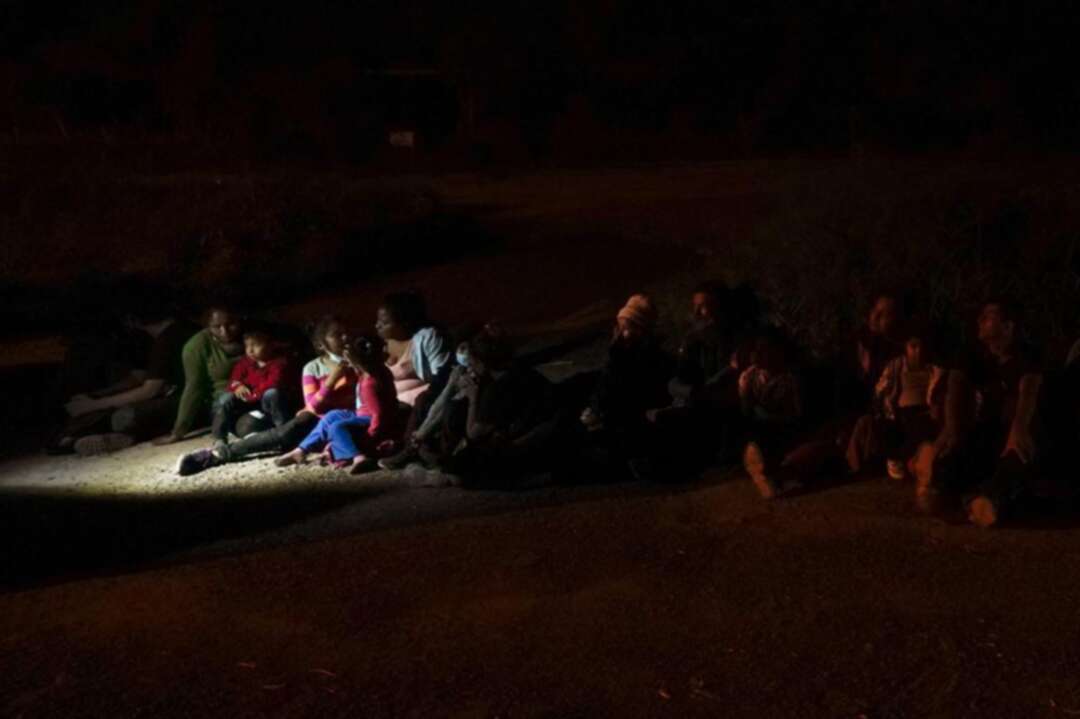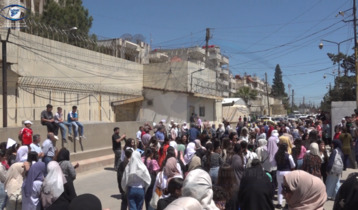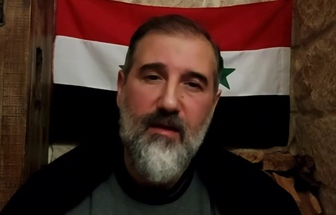-
AP Exclusive: US taps groups to pick asylum-seekers to allow into country

The Biden administration has quietly tasked six humanitarian groups with recommending which migrants should be allowed to stay in the U.S. instead of being rapidly expelled from the country under federal pandemic-related powers that block people from seeking asylum. AP Exclusive
The groups will determine who is most vulnerable in Mexico, and their criteria has not been made public. It comes as large numbers of people are crossing the southern border and as the government faces intensifying pressure to lift the public health powers instituted by former President Donald Trump and kept in place by President Joe Biden during the coronavirus pandemic.
Several members of the consortium spoke to The Associated Press about the criteria and provided details of the system that have not been previously reported. The government is aiming to admit to the country up to 250 asylum-seekers a day who are referred by the groups and is agreeing to that system only until July 31. By then, the consortium hopes the Biden administration will have lifted the public health rules, though the government has not committed to that.
So far, a total of nearly 800 asylum-seekers have been let in since May 3, and members of the consortium say there is already more demand than they can meet.
The groups have not been publicly identified except for the International Rescue Committee, a global relief organization. The others are London-based Save the Children; two U.S.-based organizations, HIAS and Kids in Need of Defense; and two Mexico-based organizations, Asylum Access and the Institute for Women in Migration, according to two people with direct knowledge who spoke on condition of anonymity because the information was not intended for public release.
Asylum Access, which provides services to people seeing asylum in Mexico, characterized its role as minimal.
The effort started in El Paso, Texas, and is expanding to Nogales, Arizona.
A similar but separate mechanism led by the American Civil Liberties Union began in late March and allows 35 families a day into the United States at places along the border. It has no end date. AP Exclusive
The twin tracks are described by participating organizations as an imperfect transition from so-called Title 42 authority, named for a section of an obscure 1944 public health law that Trump used in March 2020 to effectively end asylum at the Mexican border. With COVID-19 vaccination rates rising, Biden is finding it increasingly difficult to justify the expulsions on public health grounds and faces demands to end it from the U.N. refugee agency and members of his own party and administration.
Critics of the new selection processes say too much power is vested in a small number of organizations and that the effort is shrouded in secrecy without a clear explanation of how the groups were chosen. Critics also say there are no assurances that the most vulnerable or deserving migrants will be chosen to seek asylum.
Some consortium members are concerned that going public may cause their offices in Mexico to be mobbed by asylum-seekers, overwhelming their tiny staffs and exposing them to potential threats and physical attacks from extortionists and other criminals.
The consortium was formed after the U.S. government asked the U.N. High Commissioner for Refugees’ office in Mexico for the names of organizations with deep experience and capacity in Mexico, said Sibylla Brodzinsky, a spokeswoman for the U.N. office.
“We’ve had long relationships with them and they’re trusted partners,” she said. AP Exclusive
The groups say they are merely streamlining the process but that the vulnerable migrants’ cases can come from anywhere.
In Nogales, Arizona, the International Rescue Committee is connecting to migrants via social media and smartphones to find candidates. It plans to refer up to 600 people a month to U.S. officials, said Raymundo Tamayo, the group’s director in Mexico.
Special consideration is being given to people who have been in Mexico a long time, are in need of acute medical attention or who have disabilities, are members of the LGBTQ community or are non-Spanish speakers, though each case is being weighed on its unique circumstances, Tamayo said.
ACLU attorney Lee Gelernt said advocacy groups are in “a very difficult position because they need to essentially rank the desperation” of people, but he insisted it was temporary. The government, he said, “cannot farm out the asylum system.”
Migration experts not involved in the process have questioned how the groups determine who is eligible.
“It has been murky,” said Jessica Bolter, an analyst at the nonpartisan Migration Policy Institute who believes the administration is trying to quietly be humane without encouraging more people to come, a balancing act she doubts will succeed. AP Exclusive
“Setting out clear and accurate information about how and who might get in might lead to fewer migrants making the trip, so there’s not this game of chance that kind of seems to be in place right now,” Bolter said.
U.S. border authorities recorded the highest number of encounters with migrants in more than 20 years in April, though many were repeat crossers who had previously been expelled from the country. The number of children crossing the border alone also is hovering at all-time highs.
Against that backdrop, some advocates are seeing the makings of the “humane” asylum system that Biden promised during his campaign. Details have been elusive, with administration officials saying they need time.
Susana Coreas, who fled El Salvador, was among those identified as vulnerable and allowed into the United States last month. Coreas spent more than a year in Ciudad Juarez waiting to apply for asylum but was barred by the public health order.
She and other transgender women refurbished an abandoned hotel to have a safe place to stay after they felt uncomfortable at a number of shelters in the rough Mexican city.
But they continued to have problems. One woman had a knife pointed at her. Another had a gun pulled on her.
“There was so much anxiety,” Coreas said. “I now feel at peace.” AP Exclusive
You May Also Like
Popular Posts
Caricature
BENEFIT Sponsors BuildHer...
- April 23, 2025
BENEFIT, the Kingdom’s innovator and leading company in Fintech and electronic financial transactions service, has sponsored the BuildHer CityHack 2025 Hackathon, a two-day event spearheaded by the College of Engineering and Technology at the Royal University for Women (RUW).
Aimed at secondary school students, the event brought together a distinguished group of academic professionals and technology experts to mentor and inspire young participants.
More than 100 high school students from across the Kingdom of Bahrain took part in the hackathon, which featured an intensive programme of training workshops and hands-on sessions. These activities were tailored to enhance participants’ critical thinking, collaborative problem-solving, and team-building capabilities, while also encouraging the development of practical and sustainable solutions to contemporary challenges using modern technological tools.
BENEFIT’s Chief Executive Mr. Abdulwahed AlJanahi, commented: “Our support for this educational hackathon reflects our long-term strategic vision to nurture the talents of emerging national youth and empower the next generation of accomplished female leaders in technology. By fostering creativity and innovation, we aim to contribute meaningfully to Bahrain’s comprehensive development goals and align with the aspirations outlined in the Kingdom’s Vision 2030—an ambition in which BENEFIT plays a central role.”
Professor Riyadh Yousif Hamzah, President of the Royal University for Women, commented: “This initiative reflects our commitment to advancing women in STEM fields. We're cultivating a generation of creative, solution-driven female leaders who will drive national development. Our partnership with BENEFIT exemplifies the powerful synergy between academia and private sector in supporting educational innovation.”
Hanan Abdulla Hasan, Senior Manager, PR & Communication at BENEFIT, said: “We are honoured to collaborate with RUW in supporting this remarkable technology-focused event. It highlights our commitment to social responsibility, and our ongoing efforts to enhance the digital and innovation capabilities of young Bahraini women and foster their ability to harness technological tools in the service of a smarter, more sustainable future.”
For his part, Dr. Humam ElAgha, Acting Dean of the College of Engineering and Technology at the University, said: “BuildHer CityHack 2025 embodies our hands-on approach to education. By tackling real-world problems through creative thinking and sustainable solutions, we're preparing women to thrive in the knowledge economy – a cornerstone of the University's vision.”
opinion
Report
ads
Newsletter
Subscribe to our mailing list to get the new updates!






















